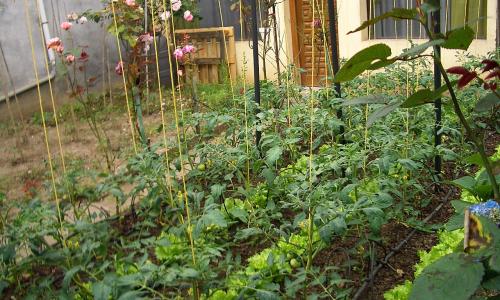
The term 'gardening' automatically conjures up visuals of an enclosed planned space, usually outdoors, where both ornamental and food plants are grown. But with shrinking open spaces in urban areas, people have had to become more creative in order to become more green. Terrace gardens! Not only are these green patches a visual delight but they also help provide city farmers with a healthy, organic food palette, free of pesticides.
An expert on terrace gardens, Dr Vishwanath Kadur has some simple tips to grow food on one's roof in earthen pots. Panchgavya, a concoction made up of cow dung and urine, fermented with a host of other ingredients, is another organic solution that can be prepared conveniently. Vani Murthy explains how a roof garden can be enriched through vermi composting.
A garden is possible no matter where you live. All you need to do is to flex your green thumb! Read our FAQ on terrace gardens and get answers to some basic questions that will have you get started on this exciting venture!






 This report prepared by
This report prepared by